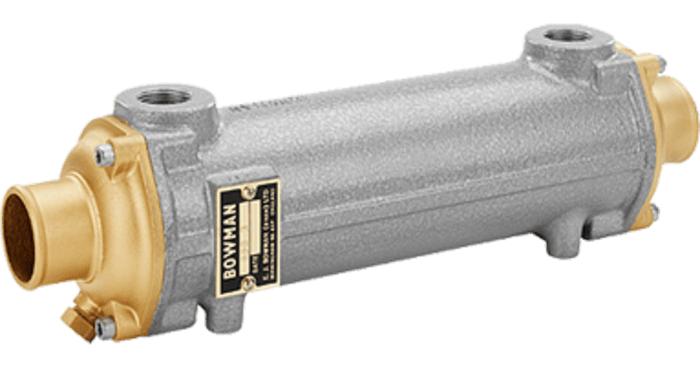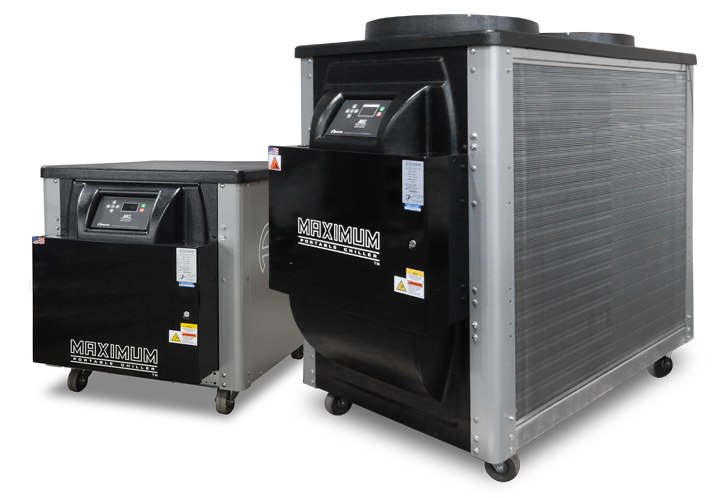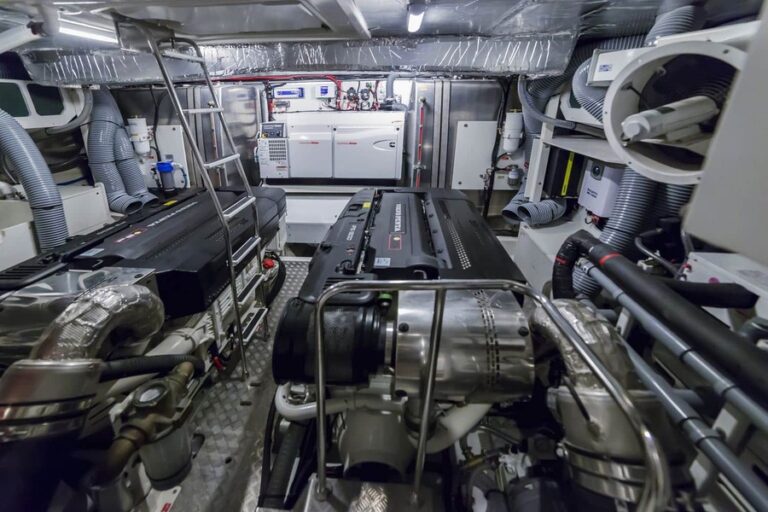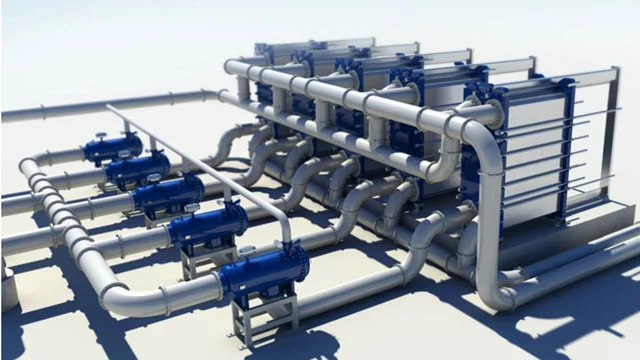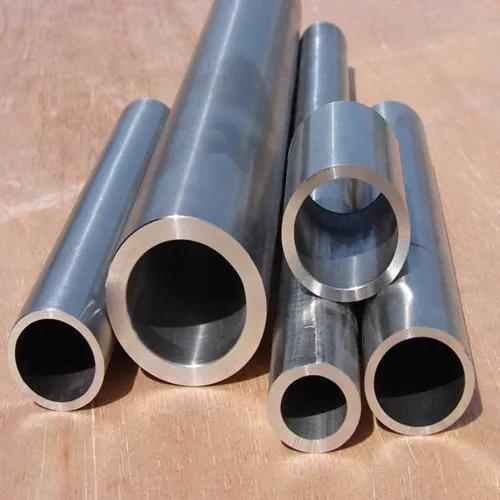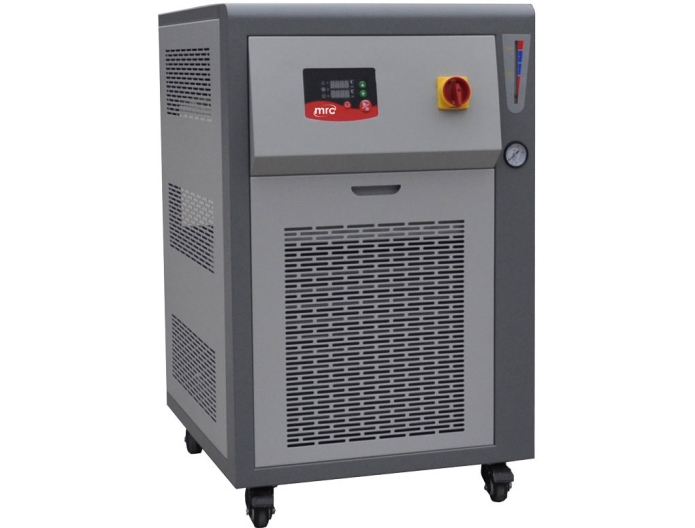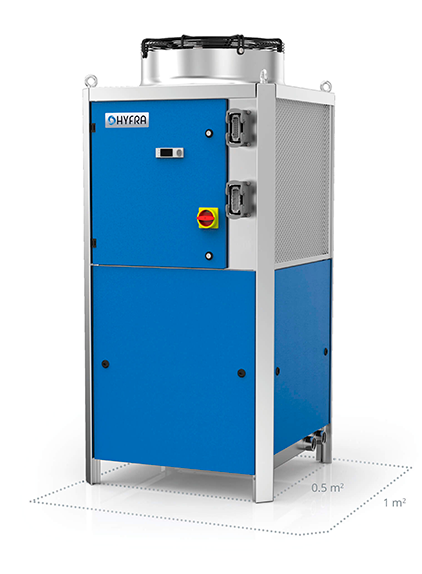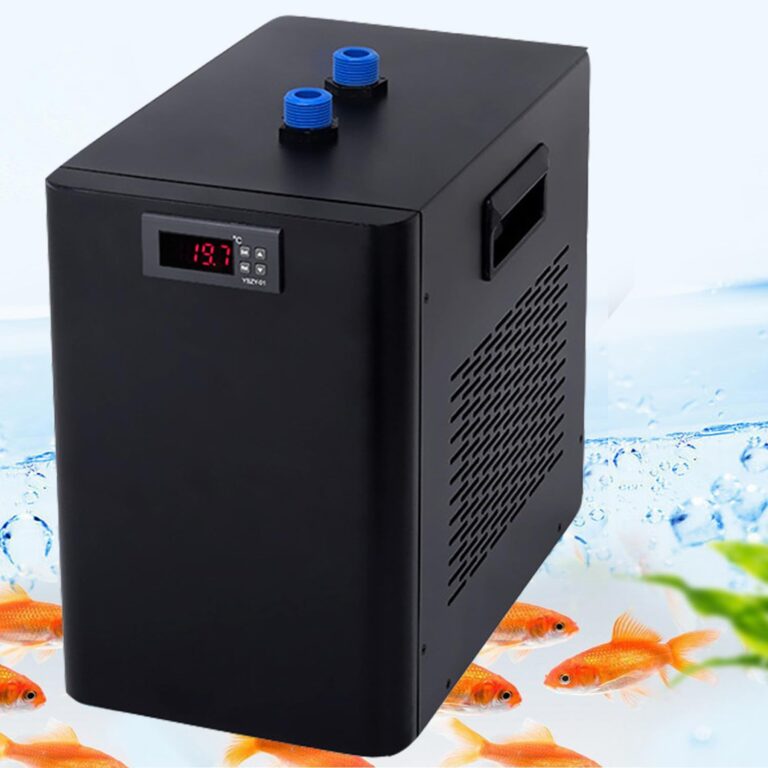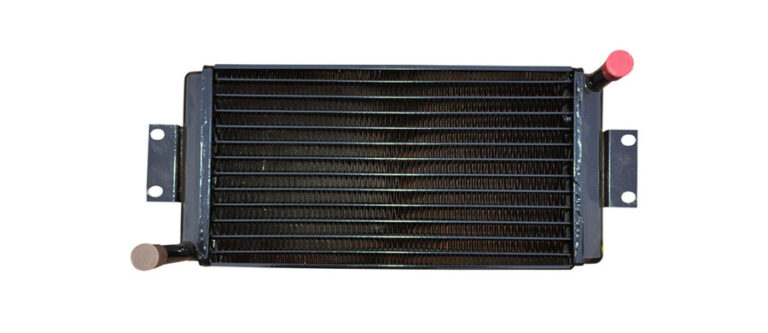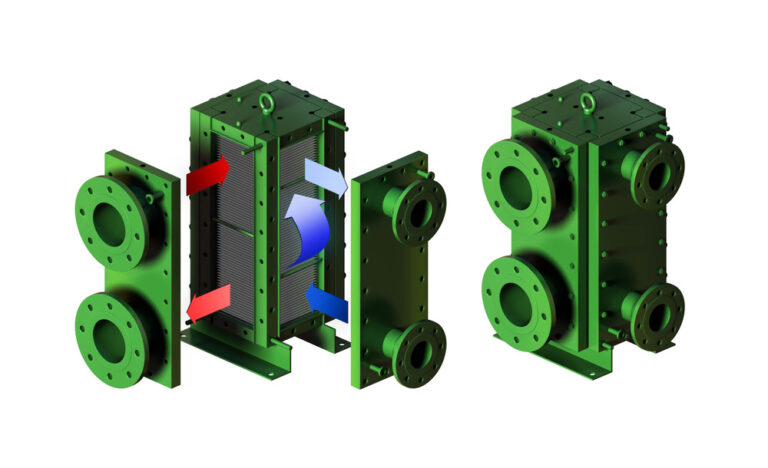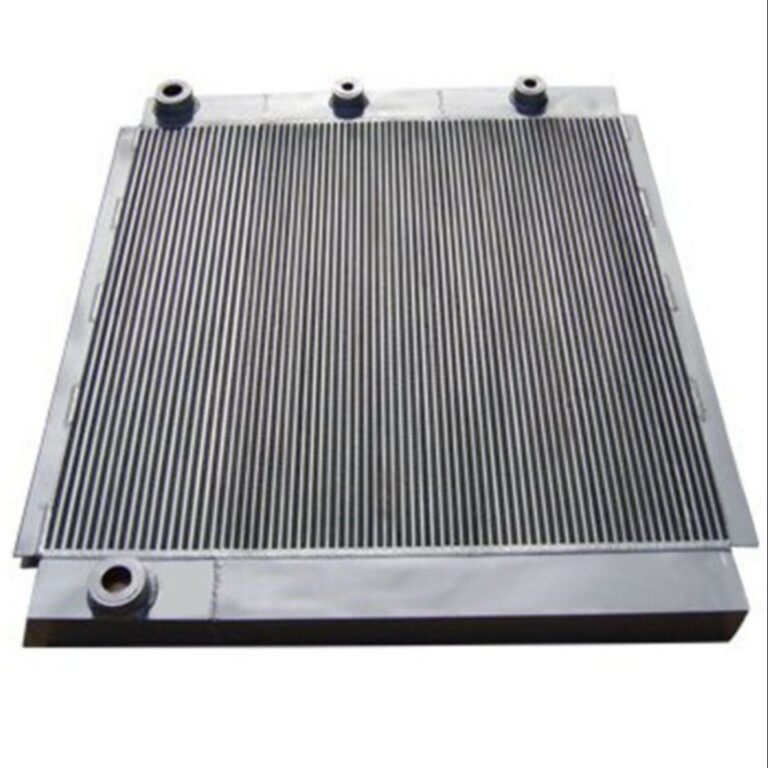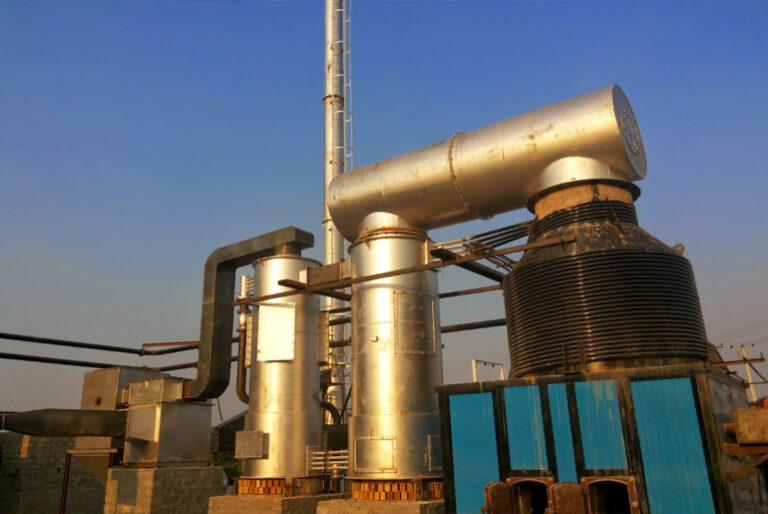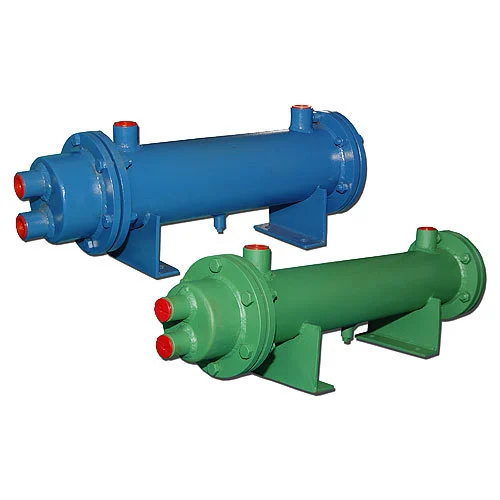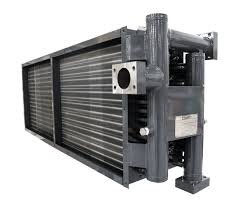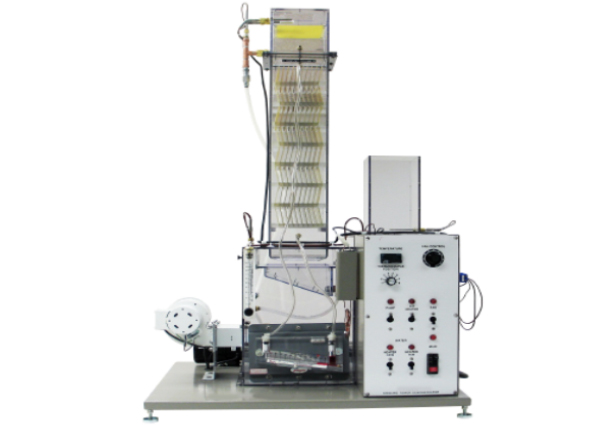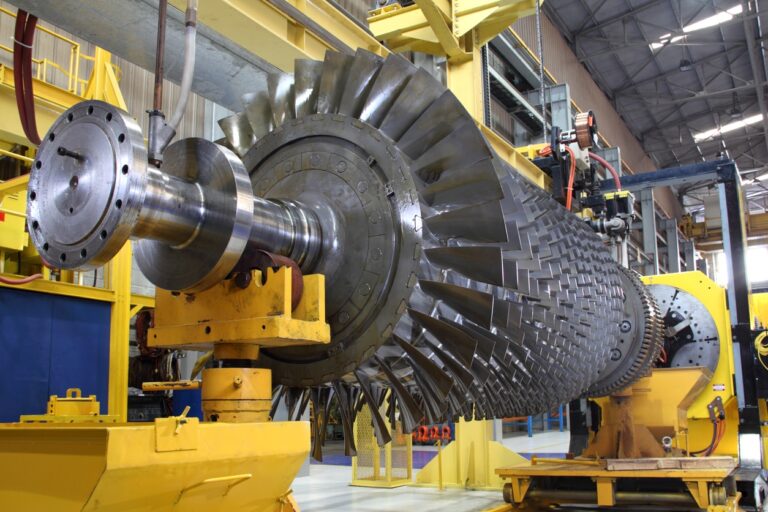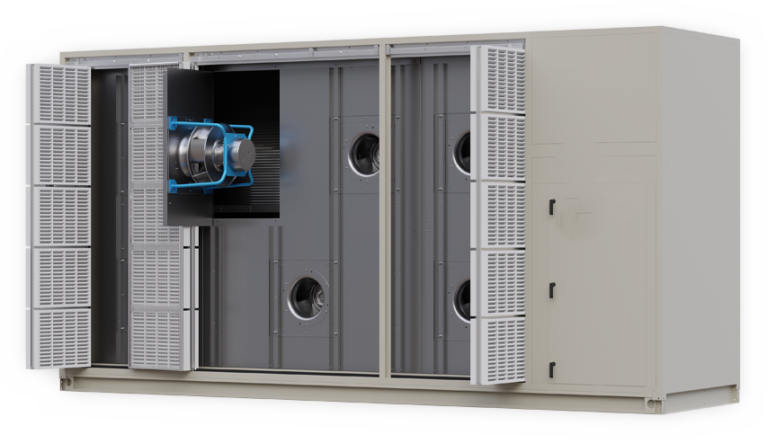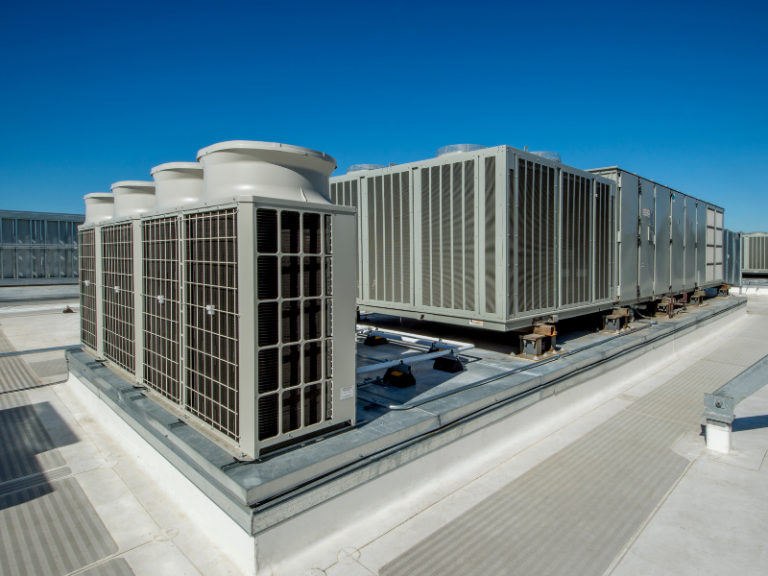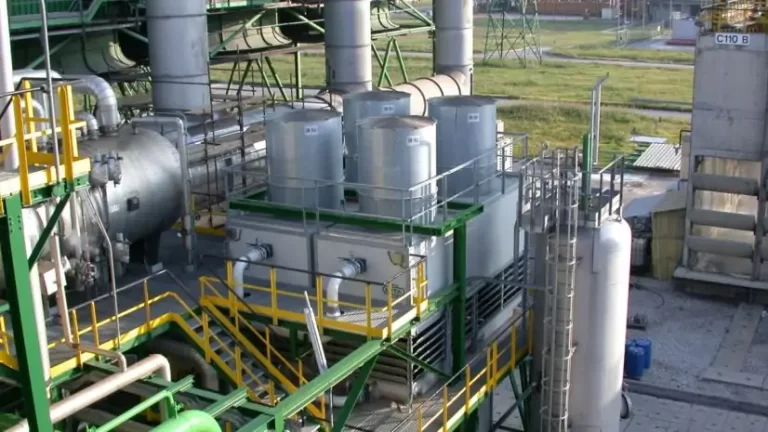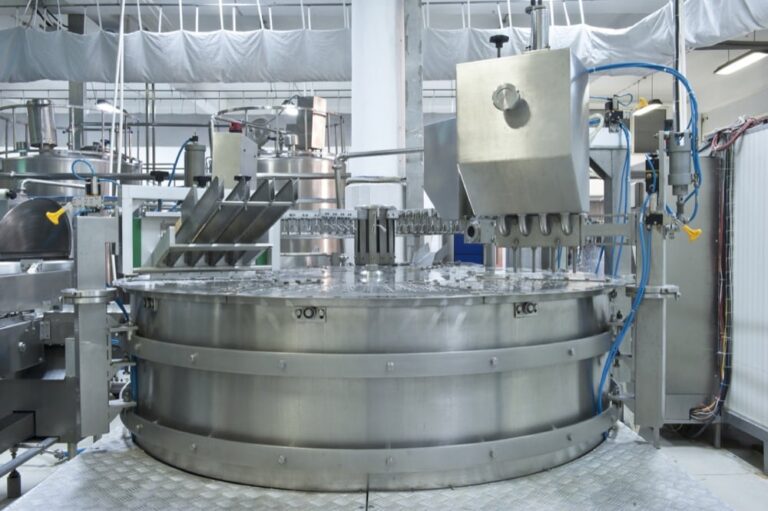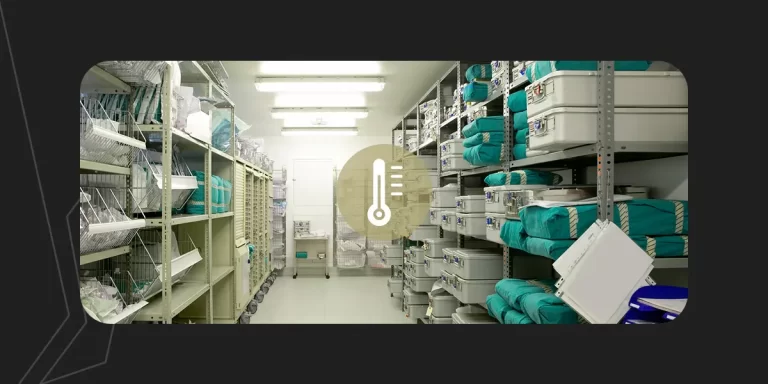Introduction Vessel oil cooler is a specialized marine heat exchanger designed to cool lubricating oil in the critical systems of ships and boats. Lubricating oil is subjected to high thermal loads during continuous…
Tug Engine Oil Cooler
Introduction Tug Engine Oil Cooler is a specialized marine-grade heat exchanger used to cool the engine lubricating oil in tugboats, which are powerful vessels designed to maneuver other ships by pushing or towing…
Portable Water Chiller
What Are Portable Water Chillers? Portable water chillers are self-contained, mobile cooling units that use refrigeration technology to remove heat from water or water-based fluids. The cooled water is then circulated through industrial…
Cooling System on Boats
Introduction Marine engines, like any internal combustion engine, generate substantial heat during operation. In the confined environment of a boat, this heat must be managed effectively to maintain performance, prevent mechanical damage, and…
Closed Cooling Water Systems
Introduction Closed Cooling Water System is a highly efficient and sustainable solution used across various industrial sectors to regulate temperatures and prevent overheating of critical machinery, equipment, and processes. Unlike open-loop cooling systems…
Alloy Tubes for Condensers
Introduction Condenser tubes are essential components in heat exchange systems, playing a crucial role in the transfer of heat between two fluids, typically in industrial refrigeration, HVAC, chemical processing, and marine applications. These…
Laboratory Water Coolers
Introduction Laboratory water coolers are crucial for maintaining controlled environments in research, medical, and industrial labs, where precise temperature regulation is essential for accurate results and the safety of both personnel and equipment.…
Medical Equipment Cooling
Introduction Medical equipment cooling is a cornerstone of healthcare technology, ensuring that complex diagnostic tools, imaging systems, and life-saving devices operate safely, efficiently, and reliably. Whether it’s the powerful MRI machines used for…
Machine Tool Cooling System
Introduction Machine Tool Cooling Systems become indispensable and there are designed to regulate and stabilize the internal temperatures of machine tools, ensuring performance consistency, extended equipment life, and minimized downtime. In today’s precision-driven…
Fish Tank Water Chiller
Introduction Fish Tank Water Chiller is a specialized piece of equipment designed to regulate, stabilize, and maintain the ideal water temperature inside an aquarium. Temperature plays a vital role in the health and…
Automotive Oil Cooler
Introduction Automotive oil cooler is a compact heat exchanger designed to cool down the oil circulating within the engine, transmission, or other vehicle components. Since oil absorbs a significant amount of heat during…
Welded Plate Heat Exchanger
Introduction Welded Plate Heat Exchangers represent one of the most advanced heat exchange technologies available today, designed to provide highly efficient thermal transfer solutions for a wide range of industrial applications. Unlike gasketed…
Air Compressor Coolers
Introduction Air Compressor Coolers is a specialized heat exchanger designed to remove the excessive heat generated when air is compressed. During compression, air molecules are forced into a smaller space, causing a rapid…
Food-Grade Thermic Fluid Cooling
Introduction Food-grade thermic fluid cooling refers to the use of specially formulated, non-toxic heat transfer fluids that comply with food safety standards to manage heat in food processing and packaging applications. These fluids…
Silver Galvanized Heat Exchanger
Introduction Silver galvanized heat exchanger is a heat exchange unit whose outer surfaces or structural elements are protected with galvanized zinc coatings, and in some specialized versions, silver coating or plating may also…
Hydraulic Press Oil Cooler
Introduction Hydraulic press oil cooler is specifically designed to regulate the temperature of hydraulic fluid, ensuring that it remains within the optimal range for performance and safety. By preventing overheating, it helps preserve…
Compressed air and gas cooling
Introduction In modern industrial and manufacturing processes, compressed air and gases are used extensively for powering tools, transporting materials, and enabling automation. However, the compression process significantly increases the temperature of air and…
Analytical Equipment in Cooling Towers
Introduction Cooling towers are the backbone of industrial and commercial heat rejection systems ensuring temperature regulation for processes in power plants, refineries, HVAC systems, food processing units, and manufacturing industries. However, the efficiency,…
Power generation: cooling of gas turbines
Introduction Gas turbines are widely used in both standalone and combined cycle power plants. These turbines operate by compressing air, mixing it with fuel, and igniting the mixture to generate high-temperature exhaust gases,…
Medical Applications: MRI machines, lasers, and other medical equipment require precise cooling.
Introduction Medical equipment such as MRI machines, laser systems, CT scanners, radiation therapy devices, and laboratory equipment require precise and continuous cooling to ensure optimal performance and prevent overheating. These devices operate using…
Chillers in Data Centers: Ensuring Optimal Cooling for IT Equipment
Introduction Data centers are the backbone of modern digital infrastructure, hosting servers, networking equipment, and storage devices that manage vast amounts of data. However, these electronic components generate a significant amount of heat,…
HVAC for Large buildings
Introduction HVAC systems are vital for ensuring a comfortable and healthy indoor environment in large buildings such as office complexes, hospitals, hotels, shopping malls, airports, and industrial facilities. These buildings experience high heat…
Semiconductor Manufacturing: very precise temperature control is needed in this industry.
Introduction Semiconductor manufacturing is an extremely temperature-sensitive process, where even the smallest fluctuations in temperature can impact the quality, performance, and reliability of semiconductor devices. Microchips and integrated circuits (ICs) are produced using…
Manufacturing: cooling of many types of manufacturing equipment.
Introduction Manufacturing industries rely on various machines and equipment to produce goods efficiently. However, these machines generate significant amounts of heat due to high-speed operations, friction, and energy consumption. If not properly managed,…
Food and Beverage: Cooling processes in food production and beverage manufacturing.
Introduction In the food and beverage industry, cooling processes are essential for preserving freshness, ensuring food safety, and maintaining product quality. From raw ingredient storage to final packaging, temperature control plays a crucial…
Pharmaceuticals: Ensuring temperature stability in manufacturing and storage.
Introduction Temperature stability plays a vital role in the pharmaceutical industry, ensuring that medicines, vaccines, and biological products remain safe, effective, and stable from manufacturing to patient use. Pharmaceuticals are composed of sensitive…

